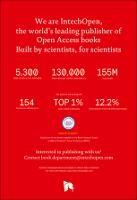Chapter Interoperability in a Heterogeneous Team of Search and Rescue Robots
Author(s)
Dias, André
Rudin, Konrad
Serrano López, Daniel
Martins, Alfredo
Bueno Cordero, José
Matos, Anibal
Bedkowski, Janusz
Moreno, German
Grati, Alberto
De Cubber, Geert
Monteiro Marques, Mario
Sanchez, Jose
Fioravanti, Stefano
Govindaraj, Shashank
Lobo, Victor
Tosa, Massimo
Language
EnglishAbstract
Search and rescue missions are complex operations. A disaster scenario is generally unstructured, time‐varying and unpredictable. This poses several challenges for the successful deployment of unmanned technology. The variety of operational scenarios and tasks lead to the need for multiple robots of different types, domains and sizes. A priori planning of the optimal set of assets to be deployed and the definition of their mission objectives are generally not feasible as information only becomes available during mission. The ICARUS project responds to this challenge by developing a heterogeneous team composed by different and complementary robots, dynamically cooperating as an interoperable team. This chapter describes our approach to multi‐robot interoperability, understood as the ability of multiple robots to operate together, in synergy, enabling multiple teams to share data, intelligence and resources, which is the ultimate objective of ICARUS project. It also includes the analysis of the relevant standardization initiatives in multi‐robot multi‐domain systems, our implementation of an interoperability framework and several examples of multi‐robot cooperation of the ICARUS robots in realistic search and rescue missions.
Keywords
interoperability, multi‐robot collaborationDOI
10.5772/intechopen.69493Publisher
InTechOpenPublisher website
https://www.intechopen.com/Publication date and place
2017Classification
Ambulance & rescue services


 Download
Download